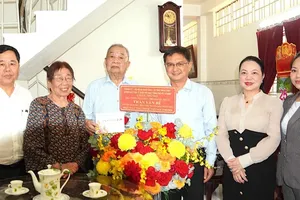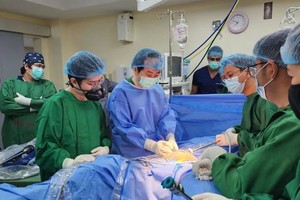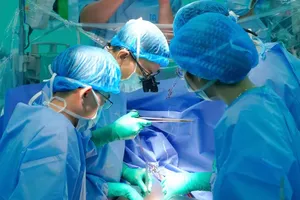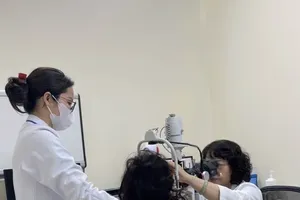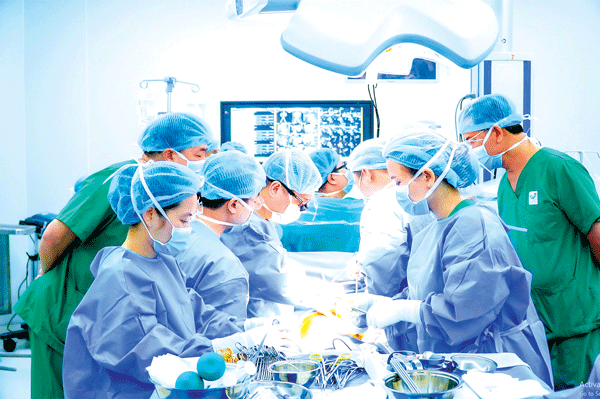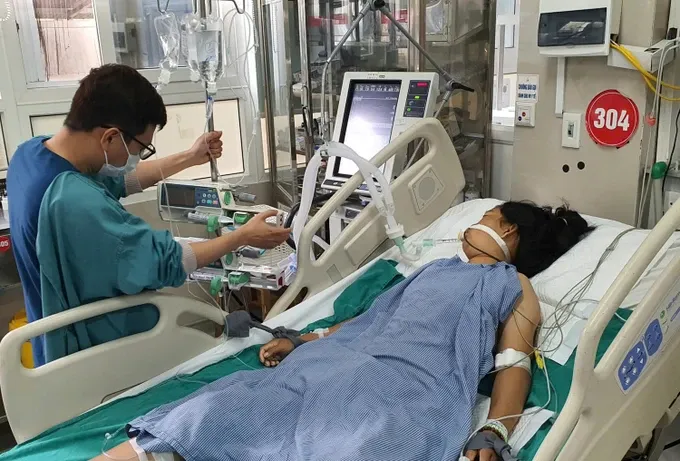
The Poison Control Center at Bach Mai Hospital recently treated 60-year-old P.T.M. from Tan Dan Commune of Soc Son District in Hanoi for alkaline water poisoning, metabolic alkalosis, and hypokalemia. After nearly a week of hospitalization, her condition gradually improved.
She revealed that due to multiple health conditions, including gastric, duodenal, and colon issues, thyroid nodules, and peripheral numbness, she had sought treatment at a local establishment recommended by acquaintances for alkaline water therapy.
After merely asking about her condition, the people there instructed her each day to drink 5-6 liters of alkaline water from their filtration system, mixed with salt, while fasting completely. This should repeat for 15 days to complete the treatment, but only in five days, P.T.M. experienced severe dizziness and persistent vomiting, necessitating emergency care.
Sharing a similar story are three patients from Lai Chau Province, who had neglected their hemodialysis at Lai Chau Provincial General Hospital to drink alkaline water. After three days following this unproven treatment, all developed respiratory distress and lost consciousness, requiring emergency transfer to the Poison Control Center.
Director Nguyen Trung Nguyen, MD, of the Poison Control Center at Bach Mai Hospital explained that excessive consumption of even regular water (filtered or cooled boiled water) within a day can be hazardous, even for healthy individuals. It can lead to edema, pulmonary edema, blood dilution, hyponatremia, cerebral edema, coma, and seizures – let alone the consequences of consuming large quantities of alkaline water daily, which might cause sensory disturbances, coma, hypokalemia leading to cardiac arrhythmias, paralysis, and potentially death.
Also infamous these days on TikTok is a videoclip claiming a woman with thyroid cancer, colon cancer, and Parkinson's disease achieved remission after 26 days of fasting, consuming only one cup of roasted rice water daily. Similar videos showcase alleged cases of gastric and esophageal cancer being “conquered” through 2-3 weeks of fasting.
Many ignorant viewers endorsed fasting as a cancer treatment, reasoning that “starving the body starves the disease as well”, suggesting cancer cells would perish without nutritional sustenance. However, doctors at K Hospital (Hanoi) report treating numerous cancer patients admitted in critical condition due to therapeutic fasting.
Assoc Prof Dr Nguyen Thi Thai Hoa, Head of Internal Medicine Department 2 at K Hospital, claimed that contemporary cancer treatment combines modern equipment with scientifically proven methodologies, including surgery, radiotherapy, chemotherapy, and systemic therapies. Nutrition plays a crucial role in treatment success, enabling patients to maintain sufficient strength for formal therapeutic approaches.
In other words, extended fasting as a cancer treatment lacks scientific foundation. This approach not only fails to cure the disease but severely compromises patients' health, complicating treatment. “Severe malnutrition compromises the immune system, accelerating cancer cell proliferation and diminishing survival chances”, emphasized Dr Hoa.
Recently, the University Medical Center-HCMC warned about severe complications and fatalities from unauthorized diabetes medications containing phenformin (a banned substance). These medications appear in various forms, including traditional remedies, herbal medicines, and diabetes pills.
Phenformin-induced lactic acidosis in early-stage diabetes patients typically manifests as fatigue, poor appetite, and muscle weakness. As the condition progresses, symptoms escalate to rapid breathing, tachycardia, hypotension, altered consciousness, and respiratory failure.


